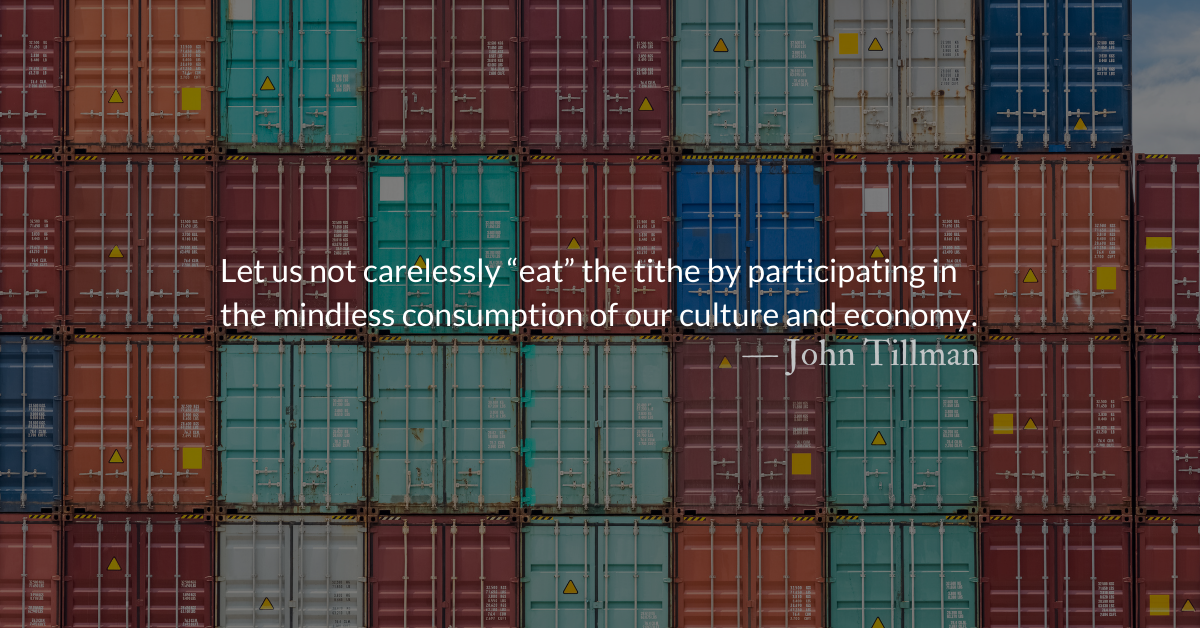Scripture Focus: Deuteronomy 26.5-12
5 Then you shall declare before the Lord your God: “My father was a wandering Aramean, and he went down into Egypt with a few people and lived there and became a great nation, powerful and numerous. 6 But the Egyptians mistreated us and made us suffer, subjecting us to harsh labor. 7 Then we cried out to the Lord, the God of our ancestors, and the Lord heard our voice and saw our misery, toil and oppression. 8 So the Lord brought us out of Egypt with a mighty hand and an outstretched arm, with great terror and with signs and wonders. 9 He brought us to this place and gave us this land, a land flowing with milk and honey; 10 and now I bring the firstfruits of the soil that you, Lord, have given me.” Place the basket before the Lord your God and bow down before him. 11 Then you and the Levites and the foreigners residing among you shall rejoice in all the good things the Lord your God has given to you and your household.
12 When you have finished setting aside a tenth of all your produce in the third year, the year of the tithe, you shall give it to the Levite, the foreigner, the fatherless and the widow, so that they may eat in your towns and be satisfied.
Reflection: Short-Circuit Oppression
By John Tillman
Those who have been abused are not immune from becoming abusers. In history, those who overthrow oppressors, often succumb to the temptation of becoming oppressors.
Moses, in his many instructions to the people before entering the land, is intentional about trying to prevent those who escaped oppression in Egypt from becoming oppressors themselves. Part of his strategy to short circuit oppression was in worship practices and prayers.
The declaration worshipers were to make when they brought in the firstfruits and the tithe was part history lesson, part confession, and part mission statement. It acknowledged humble beginnings, celebrated what God had done, accepted all peoples into God’s family, and committed the worshiper to care for the vulnerable. This was intentional. Because they had been oppressed they were commanded to care for the oppressed. Because they had been foreigners, they were to treat foreigners as native born.
Bringing our “firstfruits” and tithes to God is inextricably tied in the law to care for the poor, the foreigner, and the outcasts. It won’t matter what we do with our money if our hearts aren’t bent toward caring for the vulnerable.
Today we will pray based on this declaration from Deuteronomy 26.5-19:
Because of what you have done, Lord, we are yours.
Your hands have set us free of our own chains.
When we were hard pressed you brought us into a spacious place.
When we had nothing you gave to us abundantly more that we could imagine.
Lord we bring to you the firstfruits, tithes, and offerings of our lives.
Not our material things only but our hearts, thoughts, and souls, we give to you.
Let us not carelessly “eat” the tithe by participating in the mindless consumption of our culture and economy.
Bend our hearts to care for your church but not to neglect the foreigner, the fatherless, and the widow.
May they eat in our towns and cities.
May they be satisfied and treated with dignity.
May our offerings and our care for others cause you joy.
As you have set us free, may we work to free all humanity.
As you have treasured us, may we look on all people as your treasured ones.
As you have made us holy and blessed us, may we extend to others your blessing and call others to your holiness.
Divine Hours Prayer: The Refrain for the Morning Lessons
Deliverance belongs to the Lord. Your blessing be upon your people! — Psalm 3.8
– Divine Hours prayers from The Divine Hours: Prayers for Springtime by Phyllis Tickle
Today’s Readings
Deuteronomy 26 (Listen – 3:13)
Psalm 117-118 (Listen – 2:52)
Read more about Occupation of Meditation
The results of true prayer are tangible actions on our part, empowered by God to make a difference in our world.
Read more about Deuteronomy’s Dream for the Poor
Christians can look the darkest realities of poverty in the face and confidently say, “It doesn’t have to be this way.”






